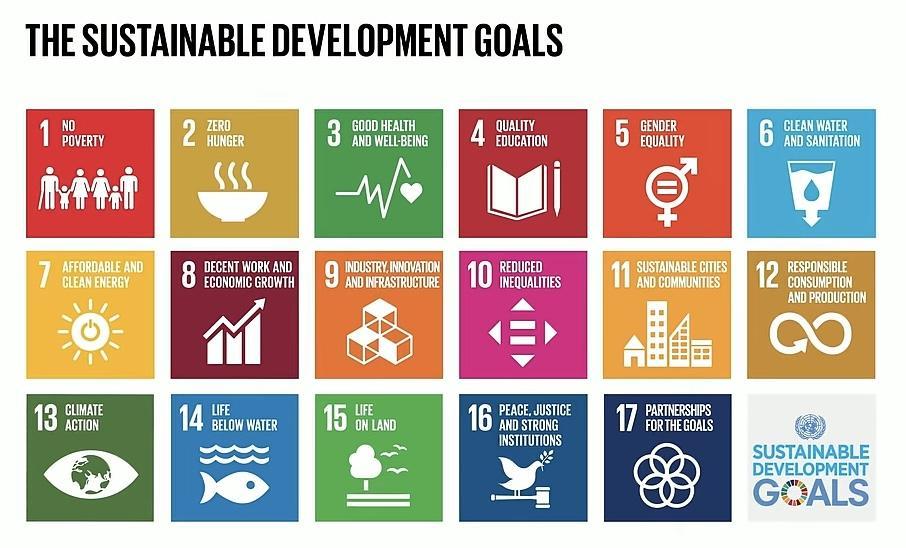THE BIG PARADOX: OILOR CO2?
Erik Bye 1st October 2025
The whole world is facing a significant paradox: Should we develop and produce the necessary fossil energy, or should we halt our progress to maintain life on Earth?
You may wonder, is the situation that dramatic? Yes, it is!
The big paradox
- Due to the cause of CO2, the UN and the member states decided to attack and reduce the amount of CO2 in the atmosphere.
- The first goals were set to 2˚C and 1.5˚C, the global temperature increases we had to stay below. These goals were established without any scientific evidence or documentation.
- Then, The Green Deal was formulated, and the goals were formulated as the reduction of CO2 in the atmosphere.
The reduction should be primarily performed by three methods:
• Stop production and use of coal, oil and gas
• Carbon Capture and Store (CCS)
• Direct removal of CO2 from the atmosphere by extraction
1. The CO2 reduction has been scaled to the atmospheric CO2 level in 1990, i.e. about 350 ppm (parts per million). Is this the optimal CO2 level for the welfare of the population and all life on Earth?
2. The atmosphere contains only 0.043% CO2, and only 4% of this is from fossil fuels, being the big, bad wolf in this adventure. Despite this, IPCC includes the total amounts of CO2 in their climate models, which is evident in the list of radiative forces. This opens up a question, whether IPCC has full control over the reduction philosophy?
This is not the only paradox in the faulty climate change narrative. The paradoxes are numerous.
Eight billion people need food, with less CO2.
The UN has 17 goals for sustainability. No. 1 is “No Poverty” of prime importance for the survival of the world's population, while No.2 is Zero Hunger!

The foundation for all life on Earth is the gas CO2, which produces oxygen and glycogen through photosynthesis:
6 (CO2 + H2O) = C6H12O6 + 6 O2
with the help of solar energy.
There is an amazing correlation between the population on Earth and the concentration of CO2 in the atmosphere:

Figure 2. The World population versus the CO2 level.
The x-axis gives the world population in millions, and the y-axis shows the corresponding CO2 level in the atmosphere for the period 1800 - 2013.
And in addition to the production of glycogen, being a food contribution, we can see from the equation of photosynthesis that CO2 contributes to the gas of all life on Earth, oxygen.
Thus, it must be a dilemma The Green Deal anticipates the reduction of the atmospheric content of CO2.
Again, we meet the paradox: Oil or not, i.e. Oil or CO2.
Strangely, the UN promotes The Green Deal and the reduction of atmospheric CO2, and at the same time promotes the removal of the world's hunger, being dependent upon just CO2. How to establish sustainability in this paradox?
Renewable Energy
- The World has a large demand for more energy, being the only way to bring the world population out of hunger and poverty.
- The Green Deal presupposes that renewable, green energy is the only energy solution for the future.
- This energy mix contains energy from: windmills on land and sea; from the production of “Green” hydrogen through the electrolysis of water; from the production of blue hydrogen using Carbon Capture and Storage (CCS).
So far, the amount of renewable green energy is far from substituting for fossil energy. This is a challenging paradox.
The Green Deal and not enough manpower?
Around 2020, The Green Deal arrived at the point of discussing how to proceed with the process, by changing from fossils to renewable energy. However, one representative for the Norwegian Government was critical: «We do not have enough workforce to initiate The Green Deal and at the same time reduce the production of oil, even with very small steps».
This was another Paradox: continue with the oil industry, attractive and well-paid jobs, in contrast to an uncertain job situation, an uncertain development of the renewable work area, and lower earnings for the workers. Since that time, it is obvious that the windmills have run into technical and economic problems, with a substantial lack of interest. This maintains the paradox: fossil or renewable energy.
Electrification of society without enough electricity?
In Norway, we have about 95% of the energy production based on water power. This means that only 5% is based on fossil energy, linked to the production of fossil fuel CO2. This is kind of «much ado about nothing», paying a suggested 170 billion NOK to accommodate the Climate measures, in reducing the CO2 level from 1990 by 90% to almost fulfil the Net Zero demand in 2090.
In Norway, we have had a strong discussion about the electrification of the continental shelf. That means running an oil platform by electricity instead of an oil generator, utilizing the production material, i.e. fossil gas and oil for the platform processes. Such an electrification has even been suggested as part of the Climate measures, to reduce the emission of CO2 along with oil and gas production. But this is obviously no climate measure, if the unused gas during
production is being transported and sold to our neighbours. But that discussion is something else in this connection.
The real paradox in this connection appears to be a shortage of electric energy, so far. It has been suggested that the use of electricity from windmills has been so far. But the development of the windmill industry has been a failure.
Parallel Paradoxes:
Electrification of oil/gas production, a climate measure, yes or no?
Answer: No!
Electrification of oil/gas production, enough electricity, yes or no?Answer: No!
Electrification of long-distance transport by cars, enough electricity or not?
Answer: Not!
Electrification of the ferries, enough electricity or not?Answer: Not!
Electrification of the air traffic, enough power or not?Answer: Not!
Electrification of society, enough additional energy from windmills, yes or no?
Answer: No?
Electrification of society, enough battery storage capacity, yes or no?Answer: No!
How will society do without oil?
This might be a future paradox. Is society prepared to adapt to the activity of daily life without the panorama of necessary substances, originating from oil?
What does this list look like? How are our daily routines totally dependent upon the fossil material?
During the COP26 meeting in Sharm el Sheikh, it was heavily discussed: phasing out, phasing down or developing oil and gas production. No substitute materials were mentioned, no schedule for any exchange processes was mentioned, and no economic costs were mentioned. It might be that The Greens were more caught by the philosophy and the vision of a future world without oil products, than on the specific way to research this utopia.
The whole of society will have to be changed when leaving the oil age. There are some areas that will be more influenced by this change than others. The production
of clothes, furniture, interior, exterior machines, vehicles and airplanes would certainly be influenced by these «material changes». However, medicine, healthcare, and science activities are probably three areas that will be most affected in our daily lives.
Within medicine and healthcare, it might be - synthetic hoses, body substitutes, operations linked to the heart and blood system, mechanical entities for people with handicaps and the production process of the medical healthcare system. In addition, the science activities may be worthwhile to mention. The pharmaceutical industry is deeply dependent upon the products and the fossil fuel regime.
However, one major question may be put forward: how to have the complete picture of this extreme change? How did we manage our daily lives in 18501900?
ChatGPT was asked this question about a society without oil. This was done by a colleague of mine: Civil Engineer Tarjei Nordbø:
«Can you give me a list of products and materials which will be removed from our daily lives, if fossil fuels are banned?» The following answers and list were given:
«With those criteria, most of our products and materials will be removed»
The list consisted of 50 items:
1. Electricity from the usual network
4. Petrol and Diesel
2. Drinking water from the Municipality 3. Electric heating, distant warming
5. No normal food in the stores/shops.
7. No milk products. 8. No meat and fish in the stores/shops.
10. Prescribed medicines. 11. Hospitals and medical services
13. Public transport
16.Air traffic
19. Mobile phones
6. No bread from the bakery
9. No fruit and vegetables in the stores/shops
12. Health care for the teeth
14. Private vehicles 15. Roads, in particular those being paved
17. Internet shopping
20. PC’s and iPads
18. Payment with credit cards
21. Internet equipment
22. TV and streaming equipment
25. Furniture
28. Clothes in synthetic fibres
31. Sports-ware
34. Toothpaste and mouth care
37. Pampers
40. One-time equipment for personal use
43. Drinking bottles of plastic
46.Alcohol/beers
49. Household paper
23.Appliances 24. Lightning equipment
26. Ordinary mattresses 27. Bedding
29. Rain-ware 30. Shoes, with synthetic materials
32. Detergents
35. Personal hygiene
38. Tampons
41. Plastic packaging
44. Lemonade/Energy drink
33. Personal bath-ware, shampoo
36. Cosmetics and skin care
39. Condoms
42. One-time equipment, for daily housewares
45. Coffee and tea from shops
47. Sugar/snacks/ chocolate 48. Fast food
50. Printers/toner
Here are the most important groups of products and materials:
- Vehicles -Airplanes - Furniture - Synthetic clothes - Mobile phones - Paved streets
- Scientific equipment
- Medical equipment
- Healthcare equipment
- Sportswear using synthetic materials
The Norwegians may be prepared for this situation, having had a competition on NRK some years ago, a program calledANNO. The challenge for the participants was to live as we did around 1750. None talked about this as a preparation for «The society without oil». But, in a way, knowing or not knowing, the issue/topic has been presented to the Norwegians.
Anyhow, this is one of the most dramatic paradoxes: More oil or not!
Concluding remarks:
Several of the puzzle pieces are still missing!
